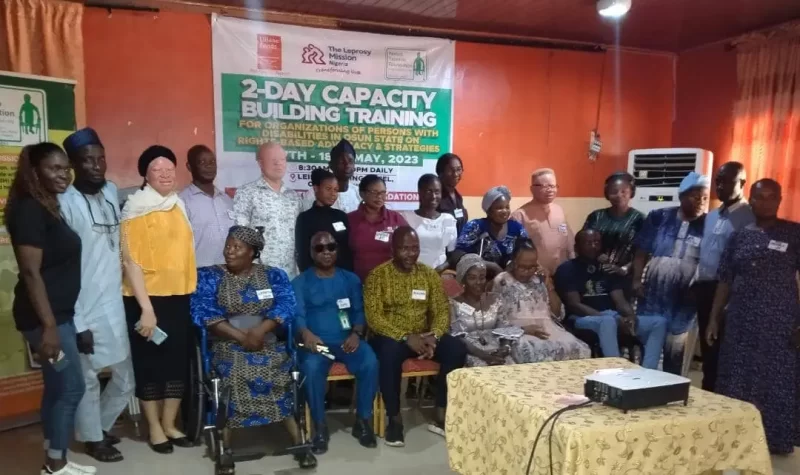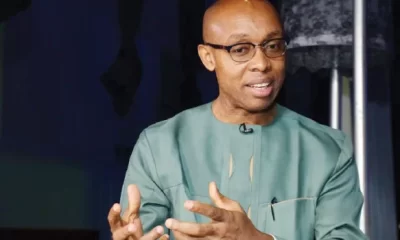Forgotten Dairies
Advocating for the Inclusion of People Living with Disabilities in Kano: A Call for Government Support -By Mustapha Mohammed
Public awareness campaigns and educational programs must also be conducted to challenge misconceptions and stereotypes surrounding disabilities. Promoting a culture of inclusivity and understanding will contribute to fostering a more compassionate and supportive society for all individuals.

In the vibrant city of Kano, Nigeria, the plight of people living with disabilities remains a pressing concern that demands urgent attention and support from the government. Amidst the bustling streets, markets, and neighborhoods, there exists a community of individuals facing daily challenges that stem not only from their disabilities but also from societal barriers and inadequate government assistance.
The estimated number of people living with disabilities in Kano State is significant, yet their access to essential services and opportunities remains limited. These individuals confront multifaceted barriers, including social stigma, inaccessible infrastructure, and a lack of tailored educational and employment opportunities.
One of the most poignant issues faced by this community is the prevailing societal stigma. Discriminatory attitudes persist, hindering their social integration and leading to exclusion from various facets of life. Such stigma often results in these individuals being marginalized and deprived of the basic respect and dignity that every human being deserves.
Moreover, the physical infrastructure in Kano poses a significant challenge for people living with disabilities. The absence of wheelchair-friendly pathways, accessible public transportation, and buildings without proper accommodations make navigating the city an arduous task. This lack of accessibility exacerbates their isolation, restricting their mobility and participation in community activities.
Education serves as a vital gateway to empowerment and inclusion. However, the education system in Kano does not adequately cater to the diverse needs of students with disabilities. The shortage of specialized resources and trained educators further impedes their access to quality education, limiting their opportunities for personal growth and development.
Additionally, employment prospects for people living with disabilities in Kano are scarce. The absence of inclusive policies and initiatives within the workforce perpetuates their economic marginalization. Many individuals possessing valuable skills and talents find themselves excluded from the job market, depriving society of their potential contributions.
Despite these challenges, there is hope for change. Initiatives undertaken by non-governmental organizations (NGOs) and advocacy groups have aimed to address these issues. These organizations provide support services, advocate for disability rights, and work towards fostering an inclusive society.
However, the responsibility to bring about significant change primarily rests on the government. It is imperative for policymakers to prioritize the inclusion and well-being of people living with disabilities in Kano. This necessitates the formulation and implementation of comprehensive policies that ensure equal opportunities in education, employment, healthcare, and accessible infrastructure.
The provision of specialized education and training facilities tailored to the diverse needs of individuals with disabilities is crucial. Equally important is the enforcement of regulations that mandate accessibility in public spaces, transportation, and buildings. By investing in these measures, the government can break down barriers and create an environment where everyone can thrive regardless of their abilities.
Moreover, initiatives aimed at fostering economic empowerment, such as vocational training programs and incentives for inclusive hiring practices, can significantly enhance the prospects for individuals with disabilities to actively contribute to the workforce and society at large.
Public awareness campaigns and educational programs must also be conducted to challenge misconceptions and stereotypes surrounding disabilities. Promoting a culture of inclusivity and understanding will contribute to fostering a more compassionate and supportive society for all individuals.
In conclusion, the government in Kano must recognize the urgent need to address the challenges faced by people living with disabilities. By prioritizing inclusivity, accessibility, and equal opportunities, policymakers can pave the way for a more equitable society where every individual, regardless of their abilities, can lead a dignified and fulfilling life. It is through collective efforts and commitment that Kano can truly become a city where the rights and well-being of all its residents are upheld and protected.
Mustapha Mohammed level student in Mass Communication Department Borno State University, Maiduguri.




















